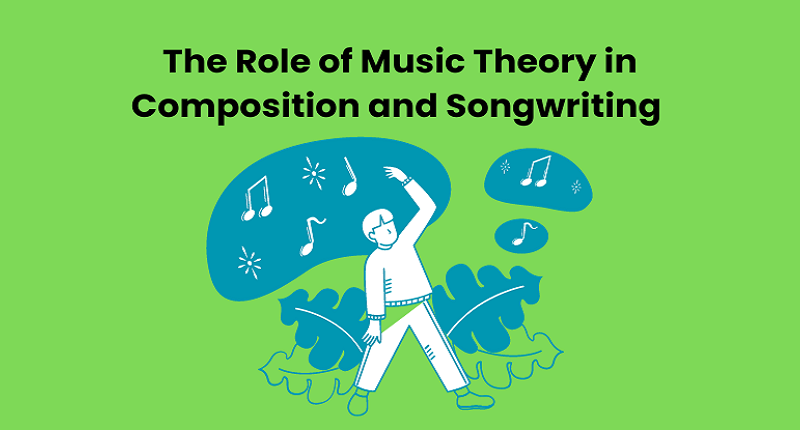The Role of Music Theory in Composition and Songwriting
Exploring music is like examining a complex fabric of sounds, rhythms, and feelings. A thorough grasp of music theory is a compass for anybody venturing out on the melodic labyrinth of composition and songwriting. In this blog, we’ll explore how music theory seamlessly integrates with the creative process and examine its importance in writing catchy songs. Whether you’re a student in a Hobbies and Interests Course or a budding artist, the secret to realising your musical potential is grasping the subtleties of Music Theory.
The Foundation: Music Theory Unveiled
Knowledge of music theory is the cornerstone of every well-crafted melody. It acts as the framework for the musical marvels that artists create. For musicians, music theory offers a common vocabulary that makes it easy to express thoughts and feelings. The notes on the stave become more than just symbols as you go further into your hobbies and interests course; they become a blank canvas ready to be filled with melodic expression.
Harmony in Diversity: Chords and Progressions
The placement of chords and progressions in a piece is like applying colour to a vibrant landscape. A fundamental aspect of musical composition is comprehending the progression and interaction of chords. With well-selected chords, composers may elicit certain emotions via music theory, which provides a roadmap for navigating the harmonic landscape. Understanding chordal harmony is a worthwhile endeavour, regardless of your level of experience as a songwriter—whether you’re a beginner learning the fundamentals in a hobbies and interests course or an experienced practitioner honing your skill.
Melodic Mathematics: Rhythm and Time Signatures
Rhythm is the vital force behind compositions in the vast fabric of music. The hidden heroes of memorable melodies are time signatures and rhythmic patterns, which are often deconstructed in a music theory lesson. The interaction between various note lengths and the time signature-imposed structure shapes a piece’s character. You will discover that the secret to writing tunes that endure is to become proficient in melodic mathematics when you immerse yourself in the rhythmic nuances throughout your hobbies and interests course.
Beyond the Basics: Advanced Concepts in Music Theory
More complex ideas in music theory provide access to even more creative possibilities as you continue your musical journey. Concepts such as counterpoint give melodies vitality by presenting the technique of musical dialogue between distinct voices. With its distinct tonalities, modal harmony gives songwriters a paintbrush of colours to work with. An extensive hobbies and interests course deeply explores these advanced themes, enabling artists to go into unexplored sound realms.
Innovation in Composition: Breaking the Rules with Purpose
Knowing when and how to violate the rules is as essential to truly mastering music theory as adhering to them. Musicians that aren’t afraid to defy expectations often create original pieces. A strong understanding of music theory is necessary to comprehend dissonance, experiment with unusual time signatures, and fuse different genres. A course on interests and hobbies that promotes artistic exploration offers the ideal setting for budding artists to break the norms with intention and creativity.
The Sonic Palette: Exploring Musical Expression Through Instrumentation
Composers chose their instruments carefully to bring their music to life, just as painters chose their paintbrushes. Instrumentation is a symphony unto itself in the wide world of music theory. Being aware of each instrument’s distinct voice, timbre, and dynamics improves the composer’s capacity to evoke strong emotions. Your musical tale will have more depth if you explore the auditory palette via self-discovery or a hobbies and interests course that teaches you these intricacies.
The Harmonic Tapestry: Lyricism and Song Structure
The symbiotic link between melody and lyrics must be acknowledged as we navigate the complexities of music theory. Writing songs entails arranging words into a harmonic tapestry and is often the core of musical expression. Aspiring songwriters explore the subtleties of song structure and poetry in an extensive hobbies and interests course. Well-written lyrics have the same resonant power as a well-crafted music. Knowing how to combine words and music enhances composing as a craft and produces a soul-stirring harmonic combination.
Conclusion
Music theory acts as the orchestra’s conductor, directing each player to perform their part in unison. Music theory is essential for everyone, whether you’re a novice learning to create music via a hobbies and interests course or an experienced composer honing your trade. It turns the disarray of notes into a well-organised work of art, fostering the growth of your creativity in a manner that appeals to the intellect and the emotions. Therefore, let the fundamentals of music theory serve as the notes that make up the melody of your future musical endeavours as you embark on your musical journey.




